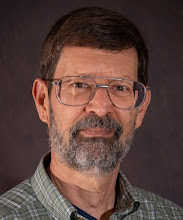Today (1/27/09) I have begun reading Jürgen Moltmann’s Theology of Hope. Already it has awakened a thought, answered a nagging question, and brought into focus a gap in my theology.
As I struggle through my “post-Evangelical” wanderings, I have wondered at the role of evangelism in my faith. Moltmann points out that eschatology is not a disconnected future account but is a living motivation for the present. The future hope is our present purpose.
We shall not usher in a time of utopia with our own efforts. It shall not arrive until Christ returns.
My question and discontent, sowed from my fundamentalist, dispensational past, was, “Why all the fuss over the present which will be done away with anyway?” All we need to do is to secure the soul through a decision for Christ, obtained via presentations of “the gospel”. All the efforts to change the world, to make a better place, would be wasted anyway, since it would all come to naught in the “great tribulation”.
This morning, though, the light dawned! What more powerful evangelistic tool is there than to give someone a glimpse of the future here in the present? What better motivation is there for someone to seek the Kingdom of Christ than to see and feel the effect of the Kingdom here and now in a world setting that conflicts with the Kingdom? “A taste of heaven” on earth would only whet one’s appetite for more!
Thus, I am thinking, real evangelism, recruitment into the Kingdom, must involve living out the teaching of Jesus in the present in such a manner that we are salt that causes a thirst and a light that reveals the path to the future, and this involves action that creates communities of “heaven on earth”, outposts of the future that are tangible and desirable.
2/3/09
As I continue to read Moltmann, I try to formulate my thoughts:
It appears, according to Moltmann, that there are two errors commonly made concerning eschatology.
1) Man “presumes” that he can create his own utopia, bringing in the kingdom by his own efforts. All attempts have so far miserably failed, because they are centered on man and his ability and effort. 2) It is thought that the eternal state is something unrelated to the present state. That the eternal state is transcendent and therefore beyond our understanding. This has origins in Greek philosophy where the material is considered sinful, inferior and only the spiritual is perfect. Erroneous thinking says that we shouldn’t spend too much effort on trying to understand it, since it is beyond our ability to understand anyway. We just need to get the motivation for living for eternity in the present.
My analysis on this is that the eternal state is what Israel was looking for; a literal, physical Kingdom made of literal, physical land, with a literal, physical King on this (restored) earth. To this, man can relate and find motivation. Toward this we can work, not in that we will complete the job, but in that we can set up “recruitment stations” where we live out the principles of the coming Kingdom in contrast to the principles of the present kingdom. The people around us will then be able to see the difference, and make their choice, join the Kingdom to come (that is already with us, yet not complete), or live for the present.

No comments:
Post a Comment